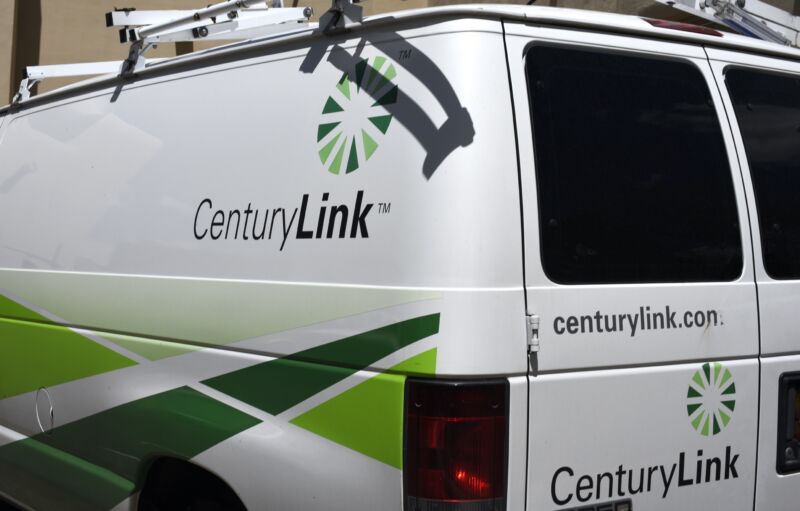
CenturyLink and Frontier Communications have again failed to meet broadband-deployment deadlines in dozens of states after taking money from the Federal Communications Commission.
When the FCC awarded Connect America Fund Phase II grants in 2015, CenturyLink accepted $505.7 million in annual support over six years in exchange for deploying broadband with 10Mbps download speeds and 1Mbps upload speeds to 1.17 million homes and businesses in 33 states. Frontier accepted $283.4 million in annual support over six years to deploy service to 659,587 homes and business in 28 states.
The deadline to hit 100 percent of the required deployments passed on December 31, 2020. Both CenturyLink and Frontier informed the FCC that they missed the deadline to finish deployment in numerous states.
The carriers won’t face the possibility of punishment yet. As Frontier said in its FCC filing on Friday last week, US law gives the ISP “until December 31, 2021 to complete its CAF II buildout in the states where it has not yet achieved the 100 percent milestone.” The law cited by Frontier says that once an ISP informs the FCC that it “has not met a final milestone,” the carrier “will have twelve months from the date of the final milestone deadline to come into full compliance.” After that, the government can take back an amount “equal to 1.89 times the average amount of support per location received in the support area,” plus 10 percent of the carrier’s total funding in that area.
CenturyLink and Frontier also fell short of interim deadlines that passed at the end of 2019.
Where they fell short
CenturyLink told the FCC that its “preliminary year-end data” suggests it “may not have met” the 100 percent deployment milestone in 23 states. Those states are Arkansas, Arizona, Colorado, Idaho, Illinois, Indiana, Iowa, Kansas, Louisiana, Michigan, Minnesota, Missouri, Montana, Nebraska, New Mexico, North Dakota, Ohio, Oregon, South Dakota, Utah, Virginia, Washington, and Wisconsin. CenturyLink said it met or exceeded the milestone in 10 states, and “is on track” to hit 100 percent in the other states before the end of 2021.
Frontier said its preliminary data suggests it may not have met the 100 percent milestone in 17 states. Those are Alabama, Arizona, California, Illinois, Indiana, Iowa, Michigan, Minnesota, Nebraska, Nevada, New Mexico, New York, Ohio, Texas, Utah, Wisconsin, and West Virginia. Frontier said it met or exceeded the milestone in eight states.
Frontier said it expects to hit 100 percent by June 30, 2021 in all states “with the exception of Arizona, Utah, and New Mexico, where Frontier has faced extraordinary permitting delays that warranted a waiver of Frontier’s 2019 interim deployment milestone. Frontier expects to complete the deployments in Arizona, Utah and New Mexico by September 30, 2021.” CenturyLink and Frontier did not say exactly how far short they are of 100 percent deployment, but are due to give more detail to the FCC by March 1.
Texas wasn’t part of Frontier’s original funding awarded in 2015, but Frontier bought Verizon’s wireline network in the state in 2016. Frontier sold its network assets in four states—Idaho, Montana, Oregon, and Washington—to Ziply Fiber in May 2020. Ziply told the FCC that it has completed the required buildouts in Idaho, Montana and Oregon. Ziply said it completed 96.13 percent of the buildout in Washington and believes it will complete the rest by February 16.
ISPs get more money
The Connect America Fund and other universal service programs run by the FCC are paid for by Americans through fees imposed on phone bills. CenturyLink and Frontier are both getting more money from the FCC in the new Rural Digital Opportunity Fund, with CenturyLink getting $262.4 million spread over 10 years and Frontier getting $370.9 million over 10 years.
Sen. Shelley Moore Capito (R-W.Va.) recently urged the FCC to block Frontier’s new funding, saying that “Frontier has a documented pattern of history demonstrating inability to meet FCC deadlines for completion of Connect America Fund Phase II support in West Virginia.” Frontier, which is moving through bankruptcy proceedings, told the FCC that it will exit bankruptcy in March or April with $10 billion less debt and a plan to “continue its large scale fiber-to-the-premises investment that is already underway and to complete its transformation into a stronger service provider.”
As we’ve noted in previous coverage, former FCC Chairman Ajit Pai awarded the new funding weeks before he left the agency even though the FCC hasn’t finished collecting more accurate deployment data that will help target funding to areas that need it most. One day before Pai left office, a bipartisan group of 157 members of Congress sent a letter “urging the FCC to make sure that every funded ISP has the technical, financial, managerial, operational skills, capabilities, and resources to deliver the services that they have pledged.”
https://arstechnica.com/?p=1736804

